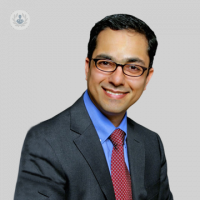Living with endometriosis: A silent struggle
Written in association with:Endometriosis is a chronic and often painful condition affecting millions of women worldwide. It occurs when tissue similar to the lining inside the uterus, known as endometrium, begins to grow outside the uterus. This abnormal tissue growth can cause a variety of symptoms, ranging from mild discomfort to debilitating pain, and can significantly impact a woman's quality of life.

Symptoms and diagnosis
The symptoms of endometriosis vary widely among individuals, which often makes diagnosis challenging. The most common symptom is pelvic pain, particularly during menstruation. However, the pain associated with endometriosis often extends beyond the menstrual cycle, affecting women throughout the month.
Other symptoms include painful intercourse, excessive menstrual bleeding, fatigue, and infertility. Some women may also experience digestive issues, such as bloating, constipation, or diarrhoea, particularly during their periods.
Diagnosis of endometriosis typically involves a combination of medical history, physical exams, imaging tests like ultrasounds, and sometimes laparoscopy, a minimally invasive surgical procedure. However, because symptoms can mimic other conditions, endometriosis is often misdiagnosed or diagnosed late, sometimes after years of discomfort.
Causes and risk factors
The exact cause of endometriosis remains unclear, though several theories exist. One theory suggests that retrograde menstruation, where menstrual blood flows backward through the fallopian tubes into the pelvic cavity, may cause the tissue to implant outside the uterus. Genetic factors are also believed to play a role, as women with a family history of endometriosis are at a higher risk. Other potential factors include immune system disorders and hormonal imbalances.
Treatment and management
While there is currently no cure for endometriosis, various treatment options are available to manage symptoms and improve quality of life. These include pain management through medications like nonsteroidal anti-inflammatory drugs (NSAIDs) and hormonal therapies that aim to reduce or eliminate menstruation. In more severe cases, surgical intervention may be necessary to remove the endometrial tissue. Lifestyle changes, such as diet modifications and regular exercise, can also help manage symptoms.
Living with endometriosis
Living with endometriosis can be challenging, both physically and emotionally. Support from healthcare providers, family, and support groups is crucial in managing the condition. Raising awareness and advocating for better research and treatment options are essential steps in improving the lives of those affected by endometriosis.


